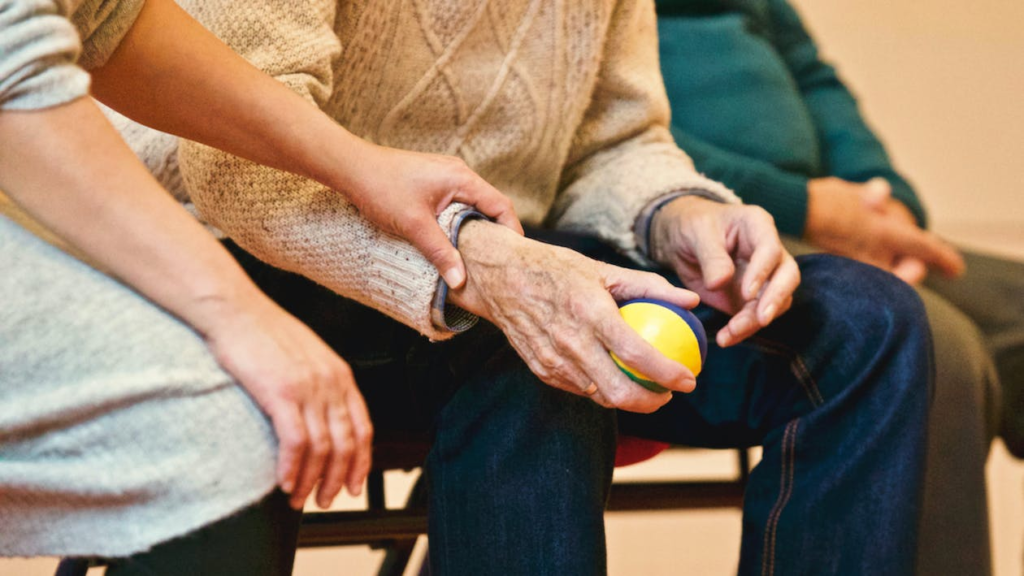As our loved ones age, some may encounter memory-related conditions such as Alzheimer’s or dementia. These conditions can pose significant challenges, not just for the individuals affected but for their families as well. In such situations, memory care communities provide specialized care and support.
In this blog, we’ll delve into the world of memory care communities, exploring their pivotal role in ensuring the comfort, security, and well-being of those who require specialized memory-related care.
The Essence of Memory Care Communities
Memory care communities are specialized senior living designed to cater to individuals with memory-related conditions such as Alzheimer’s or dementia. These communities are meticulously crafted to provide a safe, supportive, and engaging environment that enhances the quality of life for residents and offers peace of mind to their families.
Active Approach to Care
One of the defining features of memory care communities is their active approach to care. This means that the care provided is not one-size-fits-all but is adapted to each resident’s unique needs and abilities. Staff members in these communities receive specialized training that equips them to manage the challenges presented by individuals with memory-related conditions.
Security and Safety
Security and safety are top priorities in memory care communities. These facilities are equipped with secure environments to prevent wandering and ensure that residents remain within safe and controlled areas. This is particularly important as memory-related conditions can sometimes lead to confusion and disorientation.

Specialized Activities
Engagement and cognitive stimulation are central to the care philosophy of memory care communities. They offer residents a variety of activities and programs tailored to their cognitive abilities. These activities provide intellectual stimulation and encourage social interaction, which is vital for maintaining cognitive function and emotional well-being.
Providing Comfort and Support
Memory care communities go the extra mile to ensure the comfort and well-being of their residents by offering a wide range of services and amenities.
24/7 Supervision
A key aspect of memory care is the round-the-clock supervision provided to residents. This continuous oversight ensures safety and provides reassurance to both residents and their families. Families can rest easy knowing their loved ones are in a secure environment with always available staff.

Medication Management
Individuals with memory-related conditions often require medications to manage their symptoms. Memory care communities have systems to ensure that residents receive the correct medications at the right times, sparing families the worry and responsibility of medication management.
Nutritious Meals
Proper nutrition is essential for overall health; memory care communities recognize this. They typically offer well-balanced, nutritious meals that are tailored to the dietary needs of each resident.
Housekeeping and Laundry Services: Household chores and laundry can be burdensome for individuals with memory-related conditions. Memory care communities relieve residents of these responsibilities, allowing them to focus on more enjoyable activities and experiences.
Tailoring Care to Individual Needs
Personalization is a core principle of memory care communities. Each resident is unique, and their care plan should reflect that individuality. Creating and adjusting care plans is highly personalized to ensure residents receive the specific care and support they need.

Assessment and Planning
When a resident enters a memory care community, they undergo a thorough assessment. This evaluation determines their needs, preferences, and cognitive abilities. The information gathered during this assessment is used to create a personalized care plan to guide the resident’s experience within the community.
Regular Updates
Care plans are not static documents; they are dynamic and adaptable. As residents’ needs change over time, their care plans are updated to ensure they continue to receive the most appropriate care and support.
Family Engagement
Families are considered an essential part of the care team. They are encouraged to stay involved in their loved one’s care, providing valuable insights and maintaining a sense of connection. Regular updates on the resident’s well-being are shared with family members, fostering open communication and collaboration.
Encouraging Social Interaction
Maintaining cognitive function and emotional well-being is crucial for individuals with memory-related conditions. Memory care communities recognize the importance of social interaction in achieving these goals, and they provide numerous opportunities for residents to engage with their peers and participate in stimulating activities.
Structured Programs
Memory care communities offer structured programs and activities to cater to individuals at various cognitive levels. These activities are tailored to provide engagement and enjoyment, allowing all residents to participate and enjoy social interaction.
Group Outings
Residents are not confined to the community’s premises. Many memory care communities organize group outings, allowing residents to explore new experiences and create cherished memories outside the facility.
Family Visits
Families are encouraged to visit regularly. These visits foster a sense of connection and familiarity, providing emotional support to residents and their loved ones.
Transitioning to Memory Care
Deciding when it’s the right time for a loved one to transition to a memory care community can be emotionally challenging. However, certain signs may indicate that it’s time to seek the specialized care and support that these communities offer.
Safety Concerns
If a loved one’s safety is at risk due to memory-related conditions, transitioning to a memory care community can ensure their well-being. Memory-related conditions can sometimes lead to confusion, disorientation, and forgetfulness, making individuals vulnerable to accidents and hazards.
Increased Cognitive Decline
As cognitive abilities decline, the need for specialized care and support grows. Memory care communities are equipped to provide the necessary care and assistance for individuals at different stages of cognitive decline.
Caregiver Burnout
Families providing care at home may experience caregiver burnout and physical, mental, and emotional exhaustion. Caring for a loved one with a memory-related condition can be particularly demanding. Transitioning to a memory care community can provide much-needed relief to family caregivers and ensure their loved ones receive the care and attention they require.
Discover Your Path with Arrow Senior Living Advisors
Finding the right memory care communities in Des Moines or other areas can be a complex and emotional process. Let us be your guide. At Arrow Senior Living Advisors, we’re not just consultants but your trusted partners in the journey to find the ideal memory care community.
Our commitment is to ensure the comfort, security, and well-being of your loved ones as they transition to a memory care community.
With our extensive experience and intimate knowledge of senior living, we navigate you through the overwhelming process, providing comprehensive guidance and tailored solutions to your unique circumstances.
Apart from memory care, you can get in touch with the advisors for the following:
- Independent Living
- Assisted Living
- Nursing Homes
- Home Care(Private Duty, Home Health and Hospice)
Reach out to us today for a complimentary consultation.




